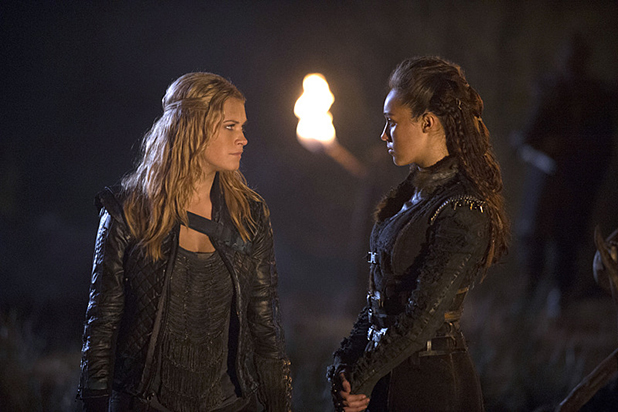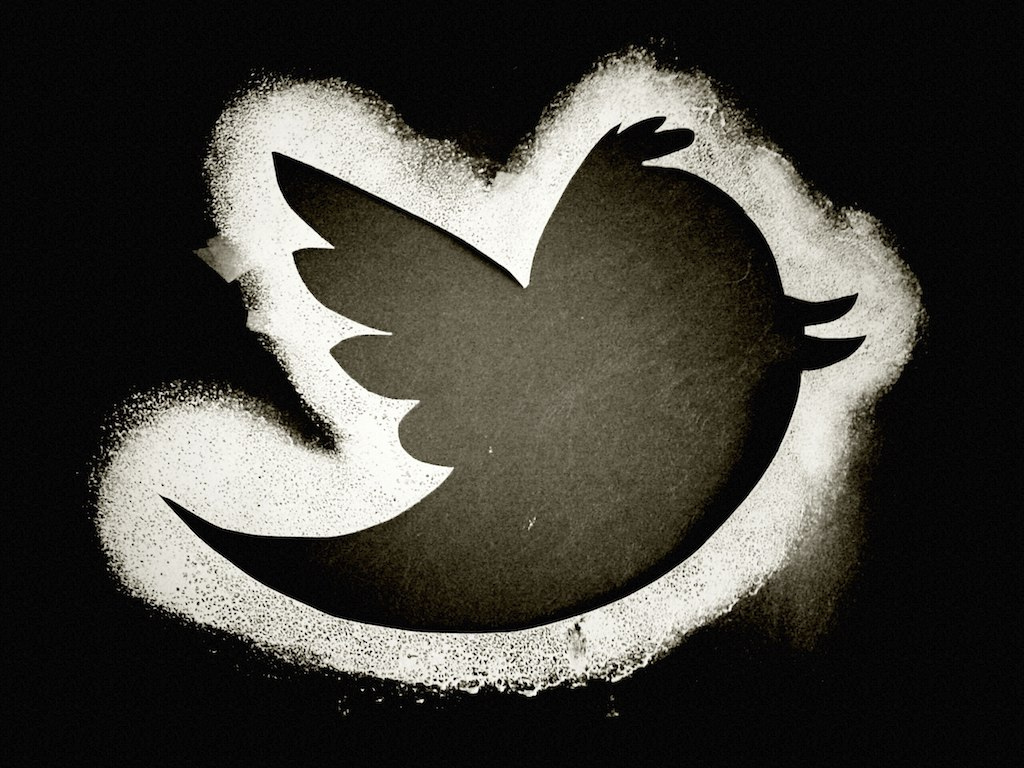The Hollywood Reporter recently did a survey of Fall Television with “a number of this year’s top showrunners about their new series, making content in 2016 and the state of broadcast TV.” Sure, we can talk about how only two of the sixteen showrunners surveyed are female. Or, we could talk about how of the sixteen showrunners surveyed here, all of them are white. But first, I want to talk about something really important: live tweeting.
THR asked all of the showrunners questioned to complete the sentence, “Live tweeting is _______”
Thirteen responded: Josh Berman (Notorious), Scott Silver (Speechless), David Guggenheim (Designated Survivor), Shawn Ryan (Timeless), Jeremy Slater (The Exorcist), Rock Reuben and Bruce Helford (Kevin Can Wait), Mark Goffman (Bull), Jason Katims (Pure Genius), Peter Lenkov (MacGuyver), Jeff and Jackie Filgo (Man With a Plan), Chris Harris (The Great Indoors), and Mike Schur (The Good Place).
What followed were some of the most bizarrely oppositional responses to live tweeting I ever could’ve expected:
Berman: Dangerous!
Silver: Something that people who don’t have AOL like me do!
Guggenheim: Boring to me.
Ryan: A form of hubris that probably reaches fewer people than you think (unless you’re Shonda Rhimes), but that allows you to connect with your most passionate fans.
Slater: A garbage idea perpetuated by garbage people. Watch the show, enjoy the show. Twitter will still be there when you finish. “Unless my employers demand that I live tweet future episodes, in which case live tweeting is a grand idea and everyone should follow @jerslater.”
Reuben and Helford: A good way to end your career.
Goffman: A great place to connect with fans, share behind-the-scenes details, and find out all the things I’m doing wrong.
Katims: Something I’m seriously considering trying one day.
Lenkov: Real time reviews and only painful if you’re human.
Filgo: Something people younger than us do.
Harris: Something I’ll never understand, since I watch TVin order to AVOID reading. But if they tell us it’s good for the show, then we’ll do it.
Schur: Good for sports, bad for fictional entertainment.
While some of the showrunners questioned had positive reactions to live tweeting, or at the very least were willing to try it or acknowledge that it’s a thing people enjoy that could, in some way, benefit their shows, it surprised me how vehemently against live tweeting some of the other showrunners were.

I have no idea why Berman thinks that live tweeting is “Dangerous,” or Reuben and Heford see it as “A good way to end your career,” but I can only imagine it has something to do with the fear of saying the wrong thing and having someone capture it on the Internet forever.
Yes, that’s a thing that happens. But how “dangerous” that is is entirely dependent on how the situation is handled afterward. Case in point: the brouhaha over The 100 and Lexa. Writer Javier Grillo-Marxuach dealt with Twitter controversy head-on, retweeting everyone whether they agreed with him or not, and engaging in actual conversation. Meanwhile, showrunner Jason Rothenberg was criticized not only for a plot point on his show, but for his response to fan criticism.
Then again, maybe Berman meant “Dangerous” as in, you risk getting sucked into a three hour discussion of fandom and NOT ACCOMPLISHING ANYTHING IN YOUR LIFE. That’s an equally real possibility!
Several of those surveyed used age or as a reason for not being too keen on the idea. Others were up front about either not getting it, being bored by it, or not having the emotional wherewithal to deal with negative comments, all of which are totally valid. What confused me was the vitriolic responses to live tweeting by people who, as writers and producers, communicate for a living.
Ryan is half right when he describes live tweeting as “A form of hubris that probably reaches fewer people than you think.” That’s pretty much social media in general. The thing is, how many people actually see and interact with one’s social media posts has less to do with how many people are actually interested than it does with advertisers and the algorithms social media platforms use to push certain posts on certain users depending on advertiser needs. So, it’s not quite hubris to expect that because you have X number of followers, or use a popular hashtag, that you will have lots of eyeballs on you. The problem is that social media platforms aren’t necessarily interested in getting you eyeballs. They’re interested in getting eyeballs on product, and they directly impact what comes up in users’ feeds.

The most puzzling response was Slater’s assertion that live tweeting is “A garbage idea perpetuated by garbage people. Watch the show, enjoy the show. Twitter will still be there when you finish.” Well, yes. Of course it will. But, a couple of points:
- It’s not about the “addiction” to Twitter Slater perceives. It’s about people deriving genuine enjoyment from being able to talk about the show with other fans in real time. Whether live-tweeting or not, people will put down the social media if your show is engrossing. If your show isn’t engrossing, Twitter is not the problem. They would just as easily fold laundry, wash dishes while “listening” to the show, or otherwise occupy themselves.
- And how is that any different than having friends over to watch a show together? It isn’t. It’s just that when you have friends over, you usually have to feed them or something. Other than that, it’s the same level of participation in the show, and the same level of distraction. Yet, Slater would probably never tell people not to invite people over to their home to watch a show together. Unless, of course, he would.
- Broadcast networks have been struggling with the notion that viewers are watching shows live less frequently when the business model for television still requires live viewers to make money. Live tweeting provides a context for watching live, whereas viewers might otherwise DVR a show, or catch it on a streaming service later. More live eyeballs means more advertiser money. More advertiser money means more show. Why would a showrunner come down on that?
- Live tweeting is opt-in, and it’s silent. If you’re a showrunner or cast member, and you’re live tweeting inside info during the episode, fans can either read and respond in real time, OR they can scroll through it during commercials. It’s only as “distracting” as the individual viewer allows it to be.
Yes, I’m sure he was joking when he said what he said about “garbage people.” Still, the snark was totally unnecessary.
Getting back to the point about this selection of showrunners being completely white and overwhelmingly male (that could be the title of a Jonathan Safran Foer novel), it’s interesting that the shows that have done well because of live tweeting have in large part been shows that are run, or have been created by women and/or people of color.
There’s a reason why, in his response, Ryan had to use the qualifier, “(unless you’re Shonda Rhimes).”
Yes, she has a crapton of followers, so when she live tweets something, she’s going to be heard. But there’s a reason for that. She’s been live tweeting from the beginning, knowing that her female fans would be into it. Scandal became Scandal in large part because of #Gladiators. Rhimes now has an empire, because she and the rest of her team are savvy enough to know how her audience interacts with television. It’s not just a thing you consume. It can be a communal experience. And at the end of the day, it’s not just about proximity to your favorite creator. It’s about the conversations fans have among themselves.
Point being, just because you don’t understand how something works, or aren’t into something, doesn’t mean that it’s “garbage for garbage people.” Maybe the reason you don’t understand live tweeting might have something to do with the reason why this list was so white and male.
But what do I know?
(image via Andreas Eldh/Flickr)
Want more stories like this? Become a subscriber and support the site!
—The Mary Sue has a strict comment policy that forbids, but is not limited to, personal insults toward anyone, hate speech, and trolling.—
Follow The Mary Sue on Twitter, Facebook, Tumblr, Pinterest, & Google+.









Published: Sep 22, 2016 05:24 pm